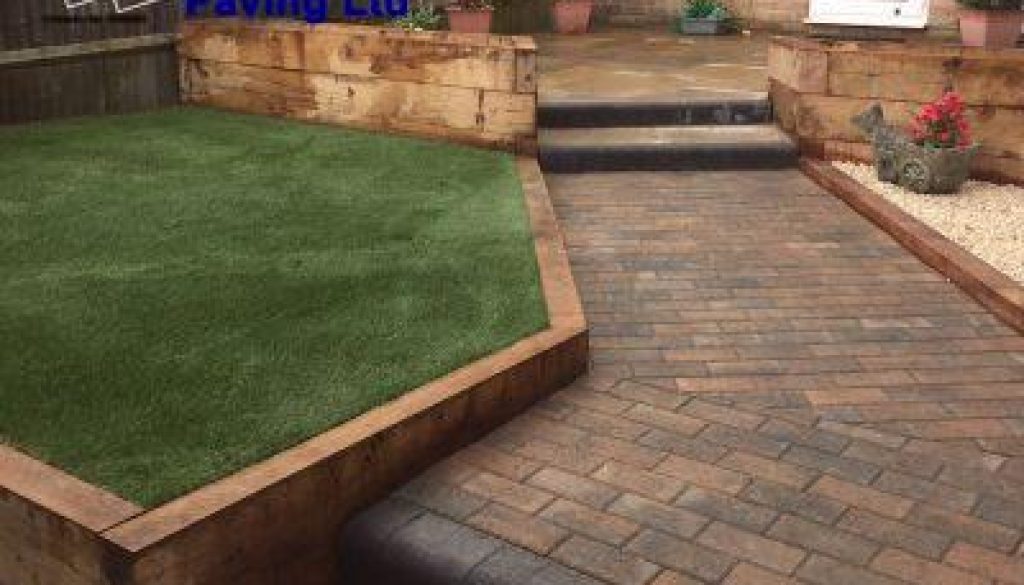Back-to-School Driveways: Non-Slip Surfaces for Safer Mornings
The end of summer always comes with a rush of activity. Families prepare uniforms, school bags, and packed lunches, while the daily routine becomes busier and more time-sensitive. During these hectic mornings, safety on your driveway is often overlooked—yet it is the very space where children, parents, and vehicles cross paths. Slips, trips, and falls can be avoided with the right driveway surface. Choosing a non-slip option ensures that mornings are not only smoother but also safer for everyone in the household.
The Risks of Slippery Driveways in Autumn Mornings
With cooler nights and early morning dew, driveways quickly become slippery. Damp leaves scattered across the surface, combined with shaded areas that never fully dry, create ideal conditions for accidents. Parents rushing to get children into the car, or kids running to meet friends, are particularly vulnerable.
Autumn mornings also bring reduced daylight. Shadows, fog, and dim conditions increase the likelihood of missing hazards underfoot. A smooth or worn driveway surface amplifies the danger, especially when moisture lingers. This is why surface choice matters: it must be functional in all weathers, not just attractive on a summer’s day.
Best Non-Slip Driveway Materials
Driveway materials differ in how well they perform underfoot during wet conditions. When safety is a priority, certain options stand out.
Block Paving: Grip with Style
Block paving has a textured surface and jointed layout, which naturally provides more traction. Its interlocking pattern means that even when wet, it is less likely to become dangerously slick. Additionally, block paving offers flexibility in design, allowing homeowners to create a practical surface without sacrificing kerb appeal.
Resin Bound: Smooth Yet Safe
Resin-bound driveways may look sleek, but their porous texture gives them grip. Unlike plain concrete, which can become slippery, resin includes small stones bound together, creating micro-textures. This reduces slipping even in damp conditions. Resin also allows water to drain through, minimising surface puddles that increase the risk of falls.
Tarmac: Reliable Everyday Safety
Tarmac is another practical solution. Its slightly rough surface provides friction underfoot, and modern installations can include anti-slip treatments for added protection. Tarmac driveways also cope well with vehicle traffic, making them suitable for busy households with multiple cars.
Each material has its strengths, and the best choice often depends on whether homeowners prioritise grip, drainage, or design versatility.

Maintenance Tips for Extra Grip
Even the best surface will lose effectiveness if it is not maintained properly. Driveways require routine care to remain safe and functional.
- Clear debris regularly: Sweep away leaves, moss, and dirt. These hold moisture and create slippery patches.
- Wash the surface: A gentle power wash removes grime without damaging the material. Avoid excessive pressure, which can loosen block paving or damage resin.
- Re-sand joints in block paving: Keeping sand topped up helps stabilise the blocks and reduces gaps where water can settle.
- Apply protective sealants: Specialised sealants not only protect against staining but also improve grip. Anti-slip additives are available for homeowners who want maximum security.
Small efforts carried out during late summer will keep surfaces safer as school runs become daily routines.
Design Features that Improve Safety
Beyond material choice and maintenance, design plays a role in creating a secure driveway.
- Drainage: Standing water is a hazard. Well-designed slopes and permeable surfaces prevent pooling.
- Edging and kerbs: Defined borders keep vehicles in line and reduce risks of slipping at edges.
- Lighting: Many school runs happen before sunrise in autumn. Subtle path lighting makes hazards easier to spot.
- Surface texture: Choosing finishes with natural grip can make a significant difference in wet conditions.
Homeowners who combine these design elements with durable materials enjoy not only safety but also enhanced kerb appeal.
Professional Installation and Family Safety
While DIY cleaning and minor adjustments are possible, the foundation of a safe driveway comes from professional installation. An experienced team ensures the correct slope, drainage, and texture from the start. This reduces hazards and provides a long-lasting finish that remains safe through years of seasonal changes.
Professional installers also understand how different materials react in real-world conditions. They know which combinations of texture and drainage deliver both functionality and appearance. For families, this means peace of mind every school morning—no rushing on slippery surfaces or dealing with preventable accidents.
Safer Mornings with the Right Driveway Choice
Back-to-school mornings will always be busy, but they do not have to be hazardous. By selecting a driveway surface with non-slip qualities, maintaining it properly, and incorporating smart design features, homeowners can create a safe environment for both children and parents.
Whether it is block paving with built-in grip, resin that drains away water, or tarmac with a reliable finish, the right choice keeps everyone secure. Safety is not just about the classroom—it begins the moment children step out the front door.
For Essex and North London homeowners, ensuring a safe, non-slip driveway is a practical investment in everyday family life. Driveline Paving Ltd specialises in professional installation of block paving, resin, and tarmac driveways designed to reduce risks and improve kerb appeal.
Contact Driveline Paving Ltd today for a free consultation and explore non-slip driveway solutions that make school mornings safer and stress-free.


